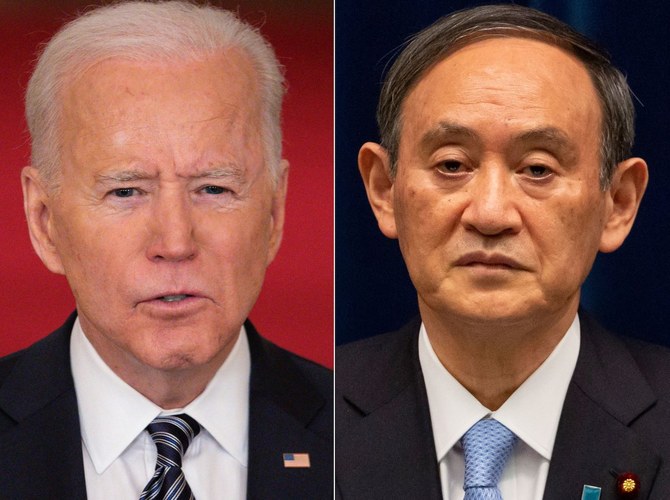The 4 Reasons Why Korea Should Participate in the Quad
(South Korea) on 24 March 2021
by Young Woo Chon (link to original)
Reflect Korea's opinion, obtain the political leverage that balances China.
Korea must not choose submission and subordination out of fear of retaliation from China.
On March 3, the Joe Biden administration clarified the goal and direction of the U.S. foreign security policy in the Interim National Security Guidance that was presented by Secretary of State Antony Blinken. Blinken declared that China was the only country that has the power to challenge the current international order, and defined the U.S.-China relationship as “the greatest geopolitical challenge that the United States faces in the 21st century.”
The Biden administration’s Indo-Pacific strategy, which focuses on restraining China, is indeed following the policy focus of the Donald Trump administration. However, it is distinguishable in the sense that the Biden administration is promoting an overall systematic approach with an alliance structure at its center. The core of this strategy is to strengthen cooperative security agreements among Korea, the U.S. and Japan, and to expand the Quadrilateral Alliance, which includes the U.S., Japan, Australia and India. In addition, this issue will be on the agenda for the Korea-U.S. “Two-plus-Two” talks that resume after a five-year delay and which will be held on March 17. The question of Korea's participation in the Quad is an important issue that will have a decisive impact on the future of Korea-U.S. relations, and on Korea's ability to establish a solid position in Eastern Asia.
The four reasons why Korea should participate in the Quad are summarized below.
First, the Quad acts as insurance for Korea's existence and security in the uncertain regional situation caused by the strategic reorganization of the Indo-Pacific region. Of course, the Korea-U.S. alliance provides the actual support for our security, but the Quad may provide reassurance that such security will be reinforced.
We must not forget that historically, the existing threat to Korea has always come from an emerging hegemon in the region. The culprit that destroyed the peace in the Asia-Pacific region and pillaged the Korean Peninsula during the first half of the 21st century, between the 1894 China-Japan War and the Pacific War, was Japan. Similarly, the main threat to 21st century peace today and Korea's vital interests comes from China's hegemonic ambition and oppressive expansionist policy to advance its "Chinese Dream.”
Second, we should participate in the Quad before it is finalized so we can help decide the goals, direction and operation of the alliance. The Quad's meeting has been elevated to the level of a summit on March 12, but it is still considered an advisory group among the four main countries that share a threat from China. Also, the goals and direction that the Quad seeks are still theoretical. However, regardless of Korea's participation, it is certain that the Quad will grow as a central point for establishing the new security order in the Indo-Pacific region.
Korea has a vital interest in peace and stability in the Indo-Pacific region. Additionally, the transportation routes in the South China Sea and the Indian Ocean are a lifeline for the Korean economy. Neglecting issues that could seriously affect our country's fate during decisions made without our participation is a path to misfortune. Furthermore, we should participate confidently in the Quad so we can exercise the right to represent ourselves when the countries that will support us during emergencies may take our vital interests into account.
Third, the Quad will provide extra protection if America aggressively confronts a China whose power it overestimates in the competition between the two countries. The regional countries participating in the Quad are concerned about the risk of military confrontation and conflict caused by the accelerated strategic competition between the U.S. and China, and they do not want to be dragged into the United States' impractical public policy while they are interested in checking China. Therefore, Korea's participation in the Quad could properly simplify and balance America's strategy in China, along with Japan, Australia and India.
Finally, Korea's participation in the Quad will enhance leverage with China. In order to achieve the desired objectives in international relations, it is more important to secure leverage in order to persuade the other party than it is to secure the other party's goodwill. Korea's leverage with China exists in proportion to our ability to refuse China's demands, since China's security interests are structurally opposed to ours. Also, Korea enhances the leverage it has when it works together with the countries it shares security interests with. It is difficult for an individual country to fight back against China and its "defeat in detail" strategy. However, there is a chance of success if the countries in the Quad confront China together, when you consider that China's retaliation against an individual country is retaliation against all participating countries.
Giving up leverage means voluntary submission to China. We must not choose submission and subordination out of fear of China's response and retaliation. Instead, we must establish a Quad-wide joint response. Independence and self-respect do not come out of thin air. We are facing the moment of truth when we must choose whether Korea will serve as the agent which forms the new Indo-Pacific security order, or is the bystander that relegates its destiny to the geopolitical game dominated by other powers. The Moon administration's strategic vision and diplomatic power is now facing just such a severe challenge.


